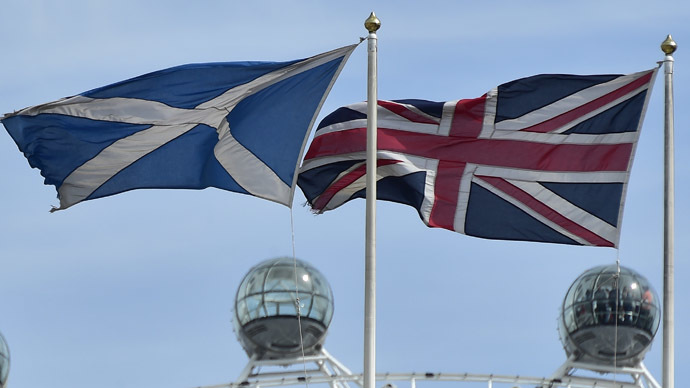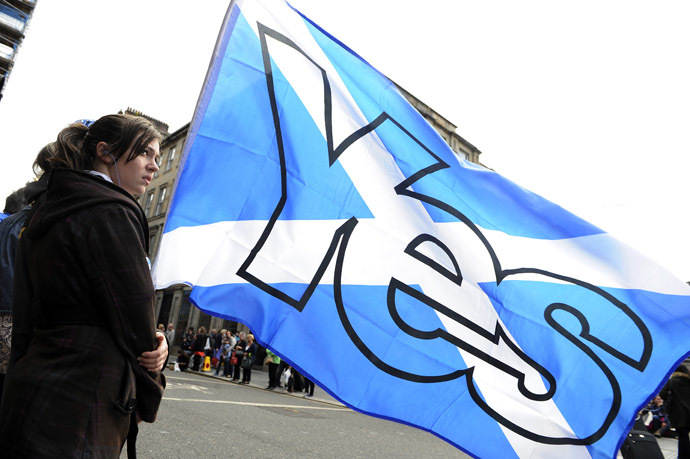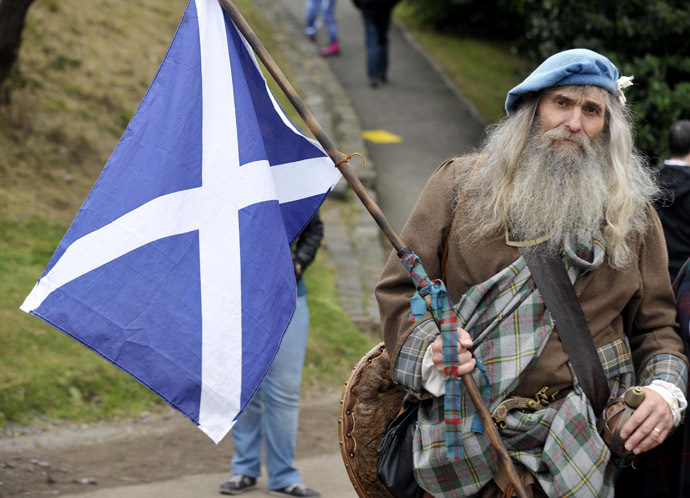‘Scottish independence would only replace one yoke with another’

All across the United States you will find Scottish cultural and fraternal societies. They are places where people with a connection to Scotland or an affinity with Scottish culture and history gather to celebrate their shared love of the old country.
In the US you will also find the largest Highland Games events anywhere in the world, including Scotland itself.
I experienced this phenomenon for myself back in the late nineties when I moved to San Francisco and came across the premises of the St Andrews Society of San Francisco, while out for an evening stroll with my partner at the time. Her apartment was close by in the affluent Russian Hill district and having just recently arrived from Scotland, where better to make friends and contacts than a society set up to celebrate the very country I’d only just left behind?
So along I went, not knowing what to expect but eager to show off my genuine Scottish accent and be lavished with the attention befitting a genuine, bona fide Scotsman. I was the genuine article, fresh off the boat, and I duly breezed through the door of that St Andrews Society puffed up with pride.
It only took fifteen minutes for me to realize that the people there – middle aged, wealthy, and right wing – had nothing in common with me nor I with them. The Scotland they held so dear was unrecognizable to me. It bore no relation to the country where I was born and grew up surrounded by the social maladies which flow from poverty – alienation, alcohol abuse, anger, violence, etc. In the end, I couldn’t wait to leave, especially when a particular item on the meeting’s agenda came up concerning a campaign to make it easier for landlords in San Francisco to evict tenants with a view to taking advantage of the huge demand for rental accommodation that was prevalent in the city at that time. The good folks of the St Andrews Society of San Francisco, some of them landlords themselves, were fully behind the idea.
You see by this point my political consciousness was growing, and the very idea of evicting people in order to be able to charge more rent filled me with revulsion.
Just over a week later I attended another meeting. This one was held in the Mission District of the city, the preserve of San Francisco’s immigrants and working class. It was a meeting that had been called in solidarity with those very tenants who were under threat of eviction. At this meeting, I found myself among Mexicans, Hispanics, African-Americans, Koreans, and people of many other ethnicities and nationalities. I felt completely at home.

It was an experience that taught me more than any number of books on social theory ever could that we are divided not by nationality or ethnicity but by socioeconomic class, by what we believe rather than what we are, a consciousness shaped by our engagement with the world rather than something as spurious as an accident of birth.
It is this simple yet enduring truth which underpins my rejection of Scottish independence as a progressive advance for working people, not only in Scotland but throughout the UK.
The Battle of Bannockburn in 1314 was fought between two French speaking kings over who owned which chunk of land. The poor bedraggled Scots who made up the army of the Scottish king, Robert the Bruce, believed they were fighting to throw off the yoke of English domination. In truth, they were merely fighting to replace one yoke with another.
The great Scottish figures of the past were men and women who viewed the world through the prism of universality rather than insularity. Consider Robert Burns, one of the world’s finest poets. Here was a man in the late 18th century who was inspired by the emancipatory ideals of the American and French revolutions. In his most famous poem, ‘A Man’s A Man For All That’, Burns identifies a universal truth when it comes to the divide between rich and poor.
Is there for honest poverty
That hangs his head and all that?
The coward slave, we pass him by,
We dare be poor for all that!
For all that and all that.
Our toils obscure and all that.
The rank is but the guinea's stamp.
The Man's the gold for all that.
Burns was no narrow nationalist; he was an internationalist whose worldview was expansive not parochial. That his legacy is being claimed by Scottish nationalists is a travesty of what he stood for.
Likewise the Scottish radical Thomas Muir of the United Scotsman, a secret society that as with the United Irishmen under Wolfe Tone was founded in the wake of the French Revolution of 1789 to spread the cause of liberty, equality and brotherhood - Liberté, Égalité, Fraternité. Muir believed that the locus of progress for the masses of the people lay in universal brotherhood. Tried for sedition in a Scottish court and transported to Australia for his sins, at his trial he famously said: "I have devoted myself to the cause of the people, it is a good cause, it shall ultimately prevail, it shall finally triumph."

Note that Muir did not say ‘Scottish people’ but ‘people’, as in the poor and exploited masses wherever they may be, as per the universal ideas of the French Revolution for which he sacrificed his liberty.
The question facing people in Scotland in 2014 is whether or not erecting a border on a tiny island in northern Europe equates to progress? The answer is unequivocally no. The Britain of the monarchy, House of Lords, British Empire, and Tory Party is indisputably nothing to be proud of for any right thinking person. But the Britain of the welfare state, NHS, trade union movement, and multiculturalism is something to be proud of. It is also something to fight for.
The difference between the British Union Jack and Scottish Saltire flags is the difference between those two French speaking kings who faced one another across the field at Bannockburn in 1314. In other words, there is very little if any difference at all. Scotland out of the UK but in NATO, out of the UK but with the same unelected queen as head of state, out of the UK but in the EU, out of the UK but with the same currency, out of the UK but with power and wealth still in the same hands under neoliberalism: just how progressive is it? How independent is it?
As Bertolt Brecht reminds us: ‘The defeats and victories of the fellows at the top aren't always defeats and victories for the fellows at the bottom.’
Thus I will be voting ‘No’ to separation on September 18.
The statements, views and opinions expressed in this column are solely those of the author and do not necessarily represent those of RT.
The statements, views and opinions expressed in this column are solely those of the author and do not necessarily represent those of RT.













